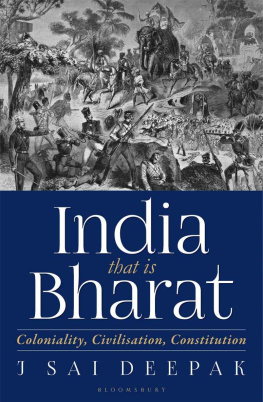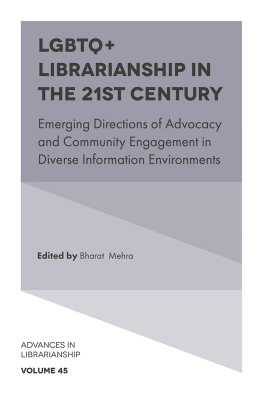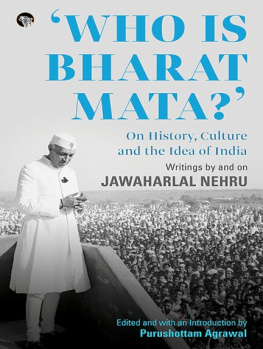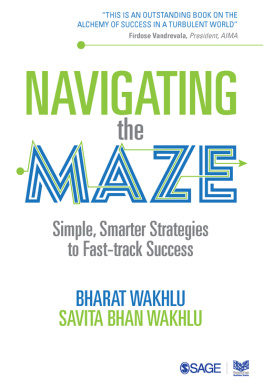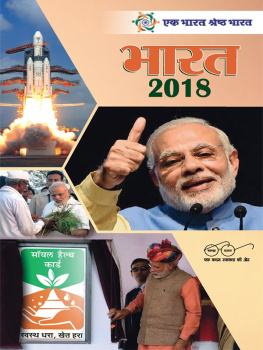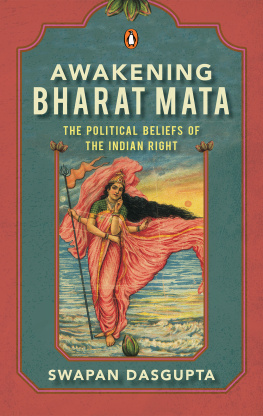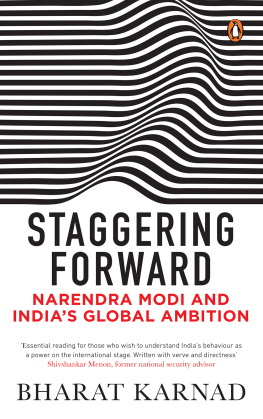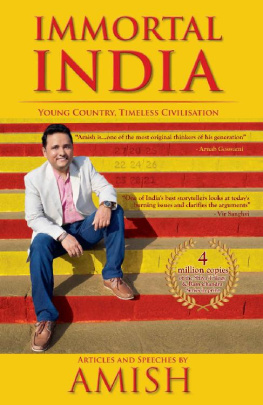India,
Bharat
and
Pakistan
India,
Bharat
and
Pakistan
THE CONSTITUTIONAL
JOURNEY OF A
SANDWICHED CIVILISATION
J . SAI DEEPAK

BLOOMSBURY INDIA
Bloomsbury Publishing India Pvt. Ltd
Second Floor, LSC Building No. 4, DDA Complex,
Pocket C 6 & 7, Vasant Kunj,
New Delhi 110070
BLOOMSBURY, BLOOMSBURY INDIA and the Diana logo are
trademarks of Bloomsbury Publishing Plc
First published in India 2022
This edition published 2022
Copyright J. Sai Deepak, 2022
J. Sai Deepak has asserted his right under the Indian Copyright Act
to be identified as the Author of this work
All rights reserved. No part of this publication may be reproduced or
transmitted in any form or by any means, electronic or mechanical,
including photocopying, recording or any information storage or
retrieval system, without the prior permission in
writing from the publishers
The book is solely the responsibility of the author and the
publisher has had no role in creation of the content and does not have
responsibility for anything defamatory or libellous or objectionable.
Bloomsbury Publishing Plc does not have any control over, or
responsibility for, any third-party websites referred to or in this book.
All internets addresses given in this book were correct at the time of
going to press. The author and publisher regret any inconvenience
caused if addresses have changed or sites have ceased to exist,
but can accept no responsibility for any such changes
ISBN: HB: 978-93-54353-01-7, eBook: 978-93-54354-52-6
Created by Manipal Technologies Limited
To find out more about our authors and books, visit
www.bloomsbury.com and sign up for our newsletters
For Amma, Appa, Akshara and Prasad

Contents
The Fall of the Mughal Empire and the Rise of Pan-Islamic
Movements in Bharat
Exposure of the Wahhabi Network and the Law of Sedition
(18581902)
The Ahl-i-Hadith, Deobandi, Barelvi, Nadwah and
Aligarh Movements
Some Thoughts on the Ideology of Pan-Islamic Movements
in the Subcontinent
Syed Ahmed Khan, the Aligarh Movement and the
Two-Nation Theory
The Story of Moderate Nationalism, Muslim Nationalism
and Electoral Separatism (19051909)
The Indian Councils Act of 1909: Yet Another Ad Hoc
Safety Valve (19071909)
The Purge of the Nationalists, a Rising League and the
Revolutionaries
Reunification of Bengal, the First World War and the
Lucknow Pact: Murmurings of Khilafat (19101916)
Annulment of the Partition of Bengal and Muslim
Displeasure (19101911)
A Troubled Ummah, the First World War and the
Lucknow Pact (19121916)
From the Home Rule Movement to Rumblings of
Khilafat (19171918)
Gandhi, Rowlatt, Government of India Act of 1919,
Khilafat and Non-Cooperation (19191924)
The Khilafat Agitation and the Non-Cooperation Movement
from 1919 to 1920
HinduMussalman ki Jai: An Uneasy and Short-lived
Bonhomie, 19211922
The Last Gasps of the Khilafat Agitation and of Hindu
Mussalman ki Jai (January 1923December 1924)
Malegaon, Malabar, Gulbarga and Kohat:
The Two-Nation Theory in Action
The Moplah Outrage of 19211922: Peasant Rebellion or
Hindu Genocide?
E ver since the release of the pre-orders for my first book, India That Is Bharat: Coloniality, Civilisation, Constitution, the first book of the Bharat Trilogy, on 7 July 2021, I have been constantly amazed and humbled by the reception it has received from readers in Bharat as well as abroad, who have ensured that the book remains a bestseller till date. This is not a thinly veiled attempt at self-congratulation but a genuine expression of gratitude to all the readers. The book has been embraced with extraordinary warmth and consumed in the manner it was intended to beslowly, critically, meditatively, individually and collectively. That the readers did not let my archaic, rigid and formal style of writing (akin to legal drafting) come in the way of consumption of the ideas and contents of the book is to their credit and a testament to their faith in and patience with me. Interestingly, my decision to include extracts from sources has been received well by the readers. The subsequent dissemination of the books ideas and contents through reviews, podcasts, group reading sessions and book club discussions has contributed more layers to the book, liminal and subliminal, which was my hope. To all of them, I have only this to sayDhanyavadam. As for those who offered their valuable and critical feedback, from the content to the style of writing, thank you for believing that I am capable of doing better. I have attempted to incorporate as many changes as possible while writing this book. Lastly, to those who were unhappy for ideological and other reasons that a work such as this was even conceived of, produced, published and well-receivedthank you for vocally expressing yourself and inadvertently enhancing the reach of the book, apart from reinforcing my faith that I have been put on the right path by the devatas.
Coming to this book, India, Bharat and Pakistan: The Constitutional Journey of a Sandwiched Civilisation, the process of writing it while balancing my professional schedule as an arguing counsel has come at the expense of time with my familymy parents, wife, brother and three dogs. I am grateful to them once again for being accepting of my unavailability with patience and understanding, and for silently giving me the confidence that they have my back. At a time when the institution of family is constantly under challenge, I have nothing but profuse gratitude for the continued survival of this institution and to the culture of Bharat, which has always placed a premium on it as an integral part of the dharmic way of life. I am also grateful to my relatives and friends who were patient with my prolonged silences and belated responses. To my juniors, Advocates Avinash Kumar Sharma, Abhishek Avadhani and Pranav Krishna, once again a huge thanks is owed for helping me meet my professional commitments during the day with their diligent preparation, which allowed me to attend to my writing schedule at night.
As for the final shape this book has taken, without giving too much away, all I can say is that if the first book was more conceptual and, therefore, a tad bit academic, this one is as real as it gets, even if I say so myself. As with the first book, the process of writing this one too has taught me a lot, but most importantly, it has added a greater sense of immediacy and urgency to the message underlying the trilogythat the study of history, especially in the context of Bharat, is not and can never be a leisurely and detached academic pursuit for conscious Bharatiyas, given the existential civilisational challenges Bharat is faced with from within and outside.
Critically, I gratefully attribute the alteration of the books originally intended scope, after I began writing it late last year, to an epiphany. When I shared the altered timeline and scope with my research assistants Shaktiki Sharma and Vanya Agarwal, they wholeheartedly supported it since they saw merit in it and were excited at the prospect of panoramically piecing the book together using as many sources as possible. That this alteration also resulted in heavy demands on them would be an understatement. Had it not been for their stellar support, eye for detail, uncomplaining disposition and unshakeable faith in my vision for the Bharat Trilogy, I would not have been able to see this book through within a reasonable timeframe, given my burgeoning professional commitments.
Next page

